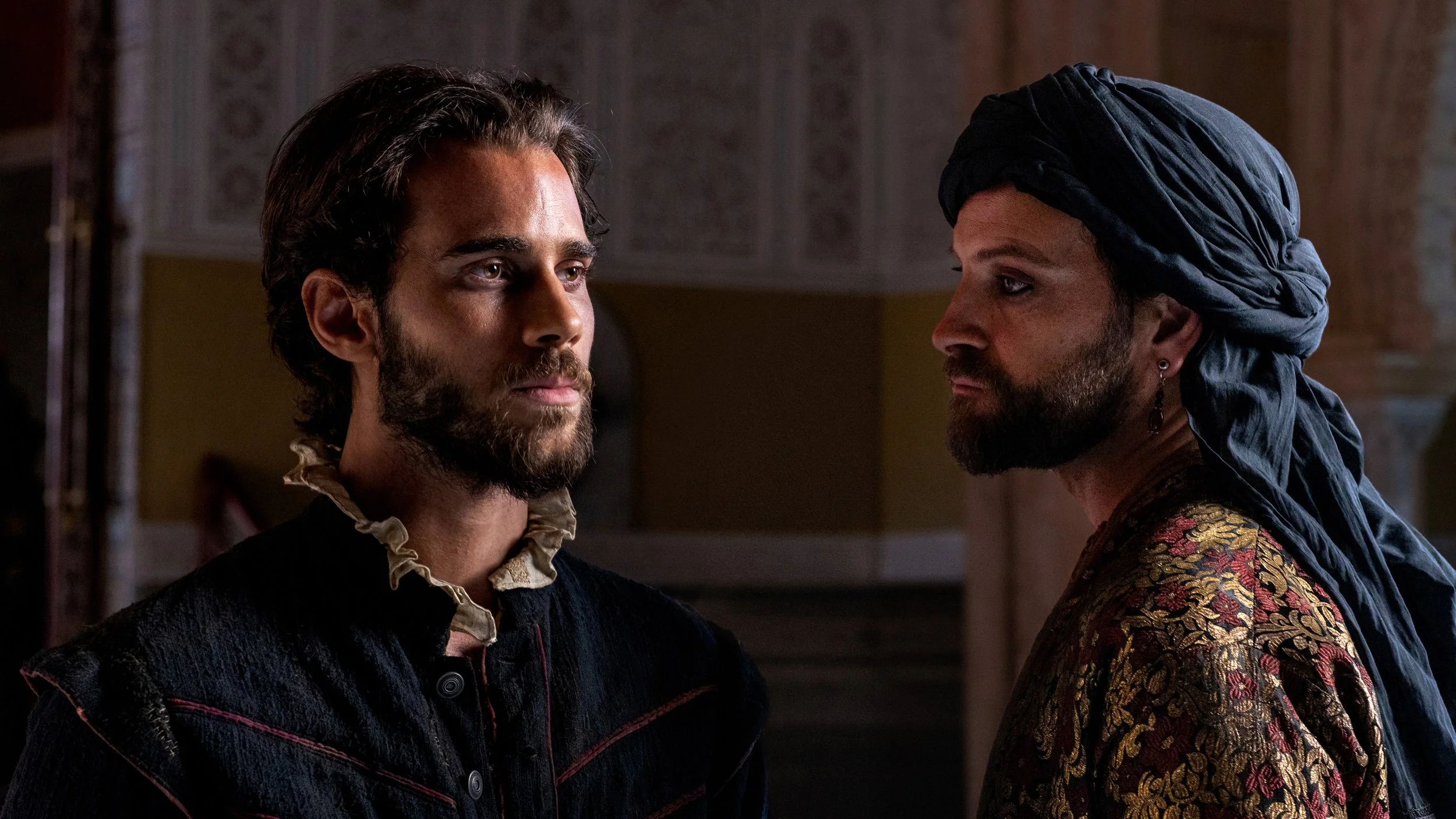TIFF 2025: ‘The Captive’ Review
Working from very little factual information regarding one of the great writers of all time, Alejandro Amenábar explores a period of time in which Miguel de Cervantes—author of Don Quixote—is captured and held for ransom far from home. Now regarded as one of the preeminent writers in the Spanish language, Amenábar’s The Captive imagines Miguel’s captivity as a form of artistic awakening as the soldier begins to realize the potential of storytelling. Lush cinematography and a detailed depiction of a time and place serve as window dressing to a mildly compelling drama about the value of the written word. Brought to life through a decadent production, The Captive weaves a satisfying yarn—but struggles to make all of its threads feel as important as its primary focus.
A creative intersection of historical blind spot and character study, Amenábar’s screenplay traces Miguel’s (Julio Peña Fernández) journey to Algiers, 1575. Captured by corsairs while fighting for the Spanish Navy, he now finds himself held hostage by the Lord of Algiers, Hasan (Alessandro Borghi), until someone can pay his ransom. Not so much slaves as they are prisoners of war, Miguel joins many other higher-class individuals held captive and forced to toil away their time within the confines of Hasan’s estate. It does not take long for Hasan to recognize what others already know about Miguel—he can tell a captivating story better than anyone else. His stories entertain his fellow prisoners, but soon become much more valuable as Hasan begins spending time with Miguel, who is forced to craft new stories to dazzle his captor. Through this process, Miguel falls in love with the art of storytelling.
Lavish production design accentuates a period of excess where the privileged flaunt their wealth and form a prison for those less fortunate. Alex Catalán lights every frame to conjure striking interiors where shadows have as much emphasis as the light breaking through them. Kinetic camerawork keeps the visual interpretations of Miguel’s stories moving at a brisk pace, while also portraying him with boundless energy. Even as the film careens into dour moments, Peña Fernández’s portrayal of Miguel aligns perfectly with Catalán’s exquisite eye, making every moment in the writer’s life pop with creativity and imagination. The Captive is a technically impressive film that is ultimately hindered by the other facets of its narrative, which feel haphazardly assembled or incomplete in their arc.
At the heart of the story is the power of storytelling: as a means of survival, currency, escape, and freedom. That comes through magnificently as Amenábar’s screenplay follows our young, injured Cervantes navigating a situation that seems impossible to escape. Injured through combat, he’s forced to find a different means of fighting his way out. Fortunately, he forms a quick bond with Father Antonio de Sosa (Miguel Rellán), who sees Miguel’s potential as a storyteller and eventually captures the eye of his captor. However, as much as The Captive focuses on this storytelling, it also sprinkles in various other elements that don’t ever seem as crucial to the film but receive a lot of lip service.
The sexual orientation of many high-ranking officials and other characters is brought up an innumerable number of times, but it never quite feels more than superfluous. Even as it twists itself into the narrative, it has this hollow sensation. There’s also the unmistakable power imbalance and taste of power that corrupts the desperate, which could have tied itself more neatly into the screenplay. The Captive’s only secondary plotline that feels naturally integrated is that of religious power. Still, it pales in comparison to a fantastical story about a writer writing his way out of hardship. The way certain characters question Miguel’s allegiances through the eyes of God is somewhat interesting when tied back to conversations around sexuality and freedom. Instead, it always feels like the film is on the cusp of bringing its many threads together. The Captive is an interesting experiment in biographical fiction—somewhat forced because of how scant knowledge is of Miguel’s personal life—and while it may not be consistently entertaining, it reminds audiences of the power of storytelling in a mostly effective manner.
The 50th Toronto International Film Festival takes place between September 4th and 14th. The Captive celebrates its World premiere on September 7th, as part of TIFF’s Special Presentations program. The full list of films selected for the festival can be found here.


